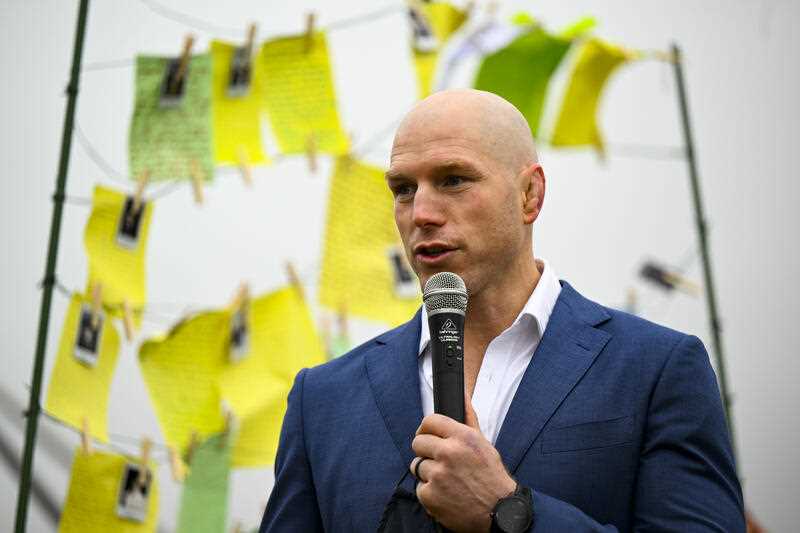Further transparency measures and reporting mechanisms should be added to the government’s climate change bill, an independent senator holding a key vote says.
David Pocock has issued 11 proposed amendments to the bill as a government-chaired Senate committee recommends the legislation pass the upper house.
The committee also recommends the government undertake further consultations on additional legislation or amendments, as well as future policy responses, following the bill passing.
The government needs the vote of an independent crossbencher on top of the Greens to pass its legislation in the Senate.
Senator Pocock’s recommendations include creating mechanisms to provide transparency on the impact of budget measures on greenhouse gas emissions and that new emissions reductions targets are automatically reflected without the need for further legislation.
He said the minister’s annual statement to parliament should include greater detail and reporting requirements should be stronger.
“Although I advocated for more ambitious emissions reduction targets, I welcome legislation that enshrines Australia’s emissions reduction targets,” Senator Pocock writes in his comments.
“A national climate law should provide a comprehensive, unifying basis for climate change policy.
“The bills should provide a framework for future action on climate … (but) falls short on measures of accountability, transparency, fairness, scientific backing, and a proactive frame around policy development.”
The government’s bill to enshrine its 43 per cent emissions reduction target by 2030 and net zero emissions by 2050 passed the lower house at the start of August.
The Greens also proposed the parliament legislate to ban new coal, oil and gas projects as well as lifting the 2030 target to 75 per cent and net zero by 2035.
“This legislature can, and must craft the tools we need to limit how much worse the climate crisis will get,” deputy chair and Greens senator Sarah Hanson-Young wrote.
The Greens have said they would support the bill despite it not going far enough for the minor party.
While Senator Pocock has also indicated he would like the see the targets set higher, he has prioritised legislating the targets.
The coalition have said they would not vote for legislating any emissions reductions targets.
Liberal senator Andrew Bragg, who hails from the party’s moderate faction and is pushing internally for a stronger stance on climate action, says there is no need to exclude nuclear power “other than for misguided ideological and political reasons”.
The opposition has announced it plans to review the use of nuclear energy to achieve clean energy, but such a move has been rejected by the government as too expensive.
Senator Bragg said legislating the targets was not necessary.
“Given the leader of the opposition’s commitment to stronger action on emissions reduction and the non-binding nature of this bill, there is no need for this empty bill,” he wrote.
“What really matters are the policies of the parties of government and the policies to achieve emissions reduction.”
By Dominic Giannini in Canberra
Get the latest news, sport, entertainment, lifestyle, competitions and more delivered straight to your inbox with the Canberra Daily Daily Newsletter. Sign up here.



